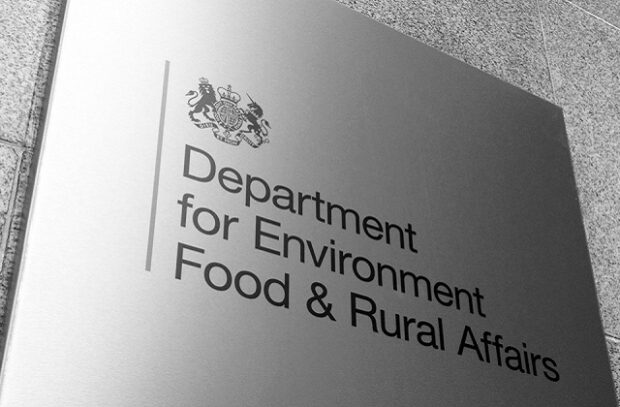Not sure if your business is compliant with the UK’s new digital waste tracking rules? You’re not alone, but you’re in the right place.
As of April 2025, the way UK businesses report and manage waste has changed. The new system might sound technical, but it’s designed to make things simpler, not harder. And we’re here to guide you through it.
Whether you're handling compliance yourself or managing a team, you’ll find everything you need to stay on track and avoid fines.
Understanding the five Ws of digital waste tracking

Digital waste tracking is now live across the UK. From April 2025, businesses are legally required to log and report their waste digitally.
The aim? To make UK waste tracking clearer, faster and more consistent, with a single platform showing where waste comes from, where it goes, and who’s responsible at every step.
We’ll cover the five key questions:
- What digital waste tracking is
- When it became law
- Who introduced it
- Why it matters
- Where to sign up and get started
What is digital waste tracking?
The new system introduces mandatory waste reporting for most UK businesses. It acts as a digital waste transfer notes replacement, eliminating the need for paper records and improving traceability.
Think of it as a live, end-to-end timeline for your waste. Each step is recorded in one place, making it easier to see where your waste is going and who’s handling it. The goal is to improve traceability, reduce illegal activity, and make compliance easier for businesses.
There are a few exceptions. Waste from household recycling centres and certain low-risk materials isn’t included in the mandatory tracking, though this may change in future updates.
For most businesses, this means getting familiar with the new DEFRA waste system and creating a digital record for every waste movement. But don’t worry, First Mile can help you do it quickly and confidently.
When did digital waste tracking become mandatory in the UK?
The April 2025 waste law update marks a major shift in how businesses manage compliance, replacing outdated paper records with a streamlined digital process.
Originally, the UK government planned to launch the system in 2024, but the rollout was delayed to allow more time for testing and feedback. During that period, businesses could use the system voluntarily to get a head start.
As of April, it’s no longer optional. If your business produces, handles or manages waste, you must record your waste movements using the new digital platform.
This is part of wider changes to environmental legislation in 2025, aimed at improving how waste is reported and regulated across the country.
Who decided to create mandatory digital waste tracking?

The move to digital waste tracking comes from the UK government’s 2018 Resources and Waste Strategy. This is a long-term plan to improve how we handle waste and resources.
The Department for Environment, Food and Rural Affairs (DEFRA) is leading the rollout. It’s supported by environmental regulators and has cross-party backing, which means it’s here to stay.
This isn't a short-term shift. It's part of a broader effort to modernise waste reporting, reduce crime, and make sustainability more achievable for businesses of all sizes.
Why is digital waste tracking being put in place?
Before April 2025, waste reporting in the UK was patchy and paper-heavy. Records were hard to trace, systems didn’t communicate with each other, and opportunities for waste crime were growing.
The Environment Agency estimates that around 18% of waste is ‘criminally managed’ in England each year, including fly-tipping, illegal exports and waste ending up in landfill, which causes long-term harm to the environment.
Digital waste tracking tackles these issues by creating one clear system, making it harder to falsify records, tracking waste from origin to destination, and cutting out opportunities for illegal activity.
For businesses, the benefits include simpler compliance, faster audits, better data, stronger ESG reporting, and reduced risk of error or non-compliance.
How digital waste tracking affects your business day to day
For most businesses, digital waste tracking means a few practical changes in how you manage collections and records.
You’ll need to record every waste movement digitally instead of using paper notes. Your team may log into the DEFRA Waste Data Service to confirm waste collections and deliveries.
Waste transfer data must be accurate and up to date, including codes, types and handlers. Some internal processes may need updating, especially if you rely on manual systems.
Staff responsible for waste management might need short training sessions to get familiar with the new process. Once set up, most of these tasks become quick and routine.
What types of waste need to be tracked
The new rules apply to most waste types created or handled by UK businesses. These include:
- General commercial waste
- Mixed recyclables and single-stream recycling (paper, cardboard, plastics, metals, glass)
- Food waste
- Hazardous waste such as chemicals, solvents and oils
- Waste Electrical and Electronic Equipment (WEEE)
- Construction and demolition waste
Certain low-risk materials and household recycling centre waste are excluded for now but may be added later. If your business produces or handles any of these waste types, you must keep digital records.

How First Mile supports digital compliance
At First Mile, we make compliance simple. Our RecycleID platform automatically links your waste collections to the DEFRA Waste Data Service, recording every transfer correctly without extra admin.
With First Mile, you can generate compliant digital records automatically, manage all waste types through one account, access live tracking and audit trails, and get alerts for missing or mismatched records.
You’ll also receive expert support from our compliance team. Whether you manage one site or multiple, RecycleID keeps you compliant, confident and ready for inspection.
Common mistakes to avoid
Even with a simple system, small errors can cause problems later. Common mistakes include forgetting to confirm receipt after a collection, using the wrong waste codes or categories, missing updates when waste handlers change, failing to keep records up to date after site changes, and not checking system access for all responsible staff.
Avoiding these issues is easy with good habits and a reliable partner like First Mile to manage the process for you.
What happens if you don’t comply
Digital waste tracking is now a legal requirement. Failure to register or report correctly could lead to enforcement actions from regulators.
These include fines, investigations, audits, or suspension of waste carrier licences. Regulators may also increase scrutiny on your waste management practices.
The good news is that most compliance gaps are quick to fix once identified. If you’re unsure where you stand, First Mile can help you get compliant fast and avoid penalties.
Where do I sign up for digital waste tracking?
Getting started with the UK’s new digital waste tracking system is simpler than you might think.
The platform, known as the Waste Data Service, is fully web-based. That means no software to download and no specialist equipment needed. You can access it from your phone, tablet or desktop.
There’s a flat annual fee of £20 for businesses to register.
Here’s how to get set up:
- Go to the DEFRA Waste Data Service and create an account
- Pay the £20 registration fee for your business
- Create a digital waste movement record for each waste transfer
- Track and assign a unique ID to each movement
- Confirm collection and receipt within two working days
You can log waste movements one at a time or in bulk, whichever works for your operations. The system is designed to be user-friendly, even if you’re new to waste reporting.
Need a hand getting started? First Mile’s RecycleID service helps you create compliant digital records, track collections, and stay audit-ready, without the stress.
What should businesses do now?
With digital waste tracking now mandatory, the key is to act quickly and confidently.
Your compliance checklist: register for the Waste Data Service, set up your profile, and pay the annual £20 fee. Map your waste flows, replace paper notes with digital records, and train your team on how to use the new system.
Use support services like RecycleID if needed and stay informed with DEFRA updates. First Mile’s business waste services make it easy to stay compliant while boosting your sustainability credentials.
Digital waste tracking starts here
Digital waste tracking is no longer a future requirement – it’s current UK law. Acting now will save you time, reduce risk, and help you build a more transparent, sustainable waste strategy.
Whether you’re fully set up or still figuring things out, First Mile is here to help. From expert advice to easy-to-use tools, we make compliance simple.
If you're unsure how to get started, or just want to make sure you're doing it right, get in touch with First Mile today.
FAQs
What is digital waste tracking in the UK?
Digital waste tracking is a legal system that logs how waste moves across the UK. Businesses must record each transfer digitally, replacing paper records and improving transparency and accountability.
When did digital waste tracking become mandatory?
The system became mandatory in April 2025 after a voluntary trial in 2024. It’s now required by law for most businesses and aims to modernise waste reporting and reduce crime.
How do I register for the waste tracking portal?
You can register via the DEFRA Waste Data Service. It’s web-based, quick, and costs £20 a year. After registering, you can log waste movements, assign digital IDs, and confirm collections.
What are the benefits of digital waste tracking?
It simplifies compliance, reduces paperwork, and improves oversight. You can track waste accurately, support sustainability goals, and reduce illegal activity with better data.
What if my business hasn’t complied yet?
Don’t panic, but don’t delay. If you haven’t registered, you could face compliance risks. Start now to avoid fines. First Mile’s RecycleID helps you get set up quickly.
Do small businesses need to use digital waste tracking?
Yes. If your business produces or handles waste of any kind, you must register and report waste movements digitally, even if you only generate small volumes.
Does my waste carrier handle digital reporting for me?
Some carriers, like First Mile, can manage tracking and record-keeping for you. But you’re still legally responsible for ensuring records are accurate and up to date.
Is digital waste tracking linked to my waste transfer note?
Yes. It replaces paper waste transfer notes. Each movement is logged with a unique digital ID in the DEFRA system.
How secure is my waste data?
All records are held on a government-managed system that meets strict data protection and environmental standards.
Can I still use my own waste management software?
Yes. Many platforms, including First Mile’s, integrate with the DEFRA Waste Data Service so you can manage everything in one place.
What’s the difference between the Waste Data Service and RecycleID?
The Waste Data Service is the government’s official portal. RecycleID by First Mile connects your collections directly to the system, making compliance easier.
What if I operate across multiple sites?
You can manage multiple locations under one account, creating digital records for each site’s waste movements.

